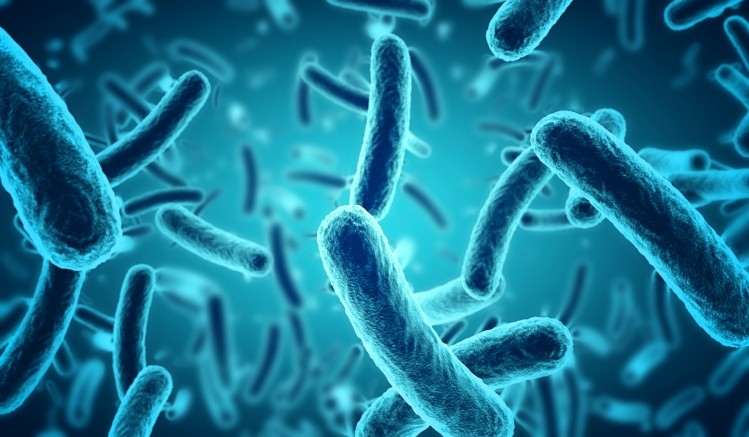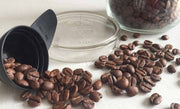Ginseng is believed to increase energy, lower blood sugar and cholesterol levels, reduce stress, promote relaxation, and treat diabetes and male sexual dysfunction. This article describes the efficacy and role of ginseng and contraindications.
The efficacy and role of ginseng
Traditionally, ginseng has been used to treat a range of ailments.
More research is needed to confirm its benefits as a supplement. However, it has been claimed that the chemical constituent ginsenosides in ginseng is responsible for the herb's clinical benefits.
Western scientists and health experts often question the medicinal properties of ginseng. There is no conclusive evidence to determine its true effectiveness.
Ginseng products vary in quality and medicinal properties. It is strongly recommended to check the ingredients of the product before buying ginseng products. Some products were found to contain small or insignificant amounts of ginseng, and some contained other substances.
Researchers believe that the efficacy and role of ginseng may be as follows:

Increase energy
Ginseng can help stimulate physical and mental activity in those who feel weak and tired. A study showed that ginseng has good effects in helping cancer patients relieve fatigue.
However, the energy-enhancing effects of ginseng have only been seen in people who are currently receiving treatment. Among patients who had completed cancer treatment, ginseng did not show statistically significant improvement.
Clearer cognitive function
Ginseng may improve thought processes and cognition. Research published in the Cochrane Library examines the accuracy of this claim.
Research shows that ginseng appears to have benefits for cognition, behavior, and quality of life. However, the review authors caution that, despite some positive findings, the studies included in the systematic review do not make a convincing case for ginseng's effectiveness as a cognitive enhancer.
Another study, published in the Journal of Dairy Science, looked at the possibility of adding ginseng to foods. Researchers have developed fortified ginseng milk that contains sufficient levels of ginseng to improve cognitive function.
However, it is currently impossible to know whether adding ginseng to foods will have the desired cognitive effects.
Anti-inflammatory effect
Ginsenosides may have anti-inflammatory effects, according to experimental results in the Journal of Translational Medicine.
Ginseng is often used to reduce inflammation. The researchers believe that ginsenosides may be responsible for targeting pathways in the immune system that can reduce inflammation.

Treating Erectile Dysfunction
Men can take ginseng to treat erectile dysfunction.
A 2002 Korean study showed that 60 percent of men who took ginseng experienced an improvement in symptoms. Research published in the British Journal of Clinical Pharmacology also claims to provide "evidence for the effectiveness of red ginseng in the treatment of erectile dysfunction."
Flu prevention
A study of the effects of ginseng on mice suggests a possible link between ginseng treatment and prevention of influenza and respiratory syncytial virus (RSV).
The results of the study showed that red ginseng extract can improve the survival rate of human lung epithelial cells infected with influenza virus. However, many studies on the effect of ginseng in preventing viruses were later found to be unreliable.
Lower blood sugar
Some studies suggest that ginseng can help lower blood sugar and treat diabetes. Ginsenosides can affect pancreatic insulin production and improve insulin resistance through other mechanisms.
More clinical studies and standardized ginseng roots are needed to consider ginseng as a possible supplement in the treatment of diabetes. This is to allow researchers to investigate which specific doses are effective.
People who are contraindicated by the side effects of ginseng
Using ginseng is probably safe, but it can cause many side effects, including:
- Insomnia
- Restless
- anxiety
- manic
- hypertension
- Euphoria
- Headache
- nosebleed
- vaginal bleeding
- vomiting and/or diarrhea
- Hypoglycemia
Long-term side effects of ginseng are unknown.
Many possible drug interactions are possible. Ginseng should not be taken with the following medicines:
- Coumadin (warfarin), as this herb may decrease the effectiveness of the medicine and cause blood clotting
- a class of depression medications called MAOIs, which may cause anxiety, headaches, restlessness, and insomnia
- hypoglycemic medicine, as it may cause dangerously low blood sugar
- Antipsychotics, as it may increase efficacy
- Stimulants, as it may increase effects as well as unwanted side effects
- Pregnant women should not take ginseng. A compound found in ginseng, a closely related species of ginseng, has been linked to possible birth defects.
Products Recommended
The role of ginseng and its contraindications are summarized above. Here I recommend Wildstud™ Maca Energy Coffee to everyone. Dozens of natural ingredients are added to our products, including ginseng, maca oyster and more to help restore energy and treat erectile dysfunction. Most customers give us good feedback and repeat purchases after using it.

How Does WildStud™ Maca Energy Coffee Help With Erectile dysfunction (ED)?
Wildstud™ Maca Energy Coffee is a natural stimulant. Now, we're not talking about the stimulant that will make you feel jittery or anxious. Wildstud™ Maca Energy Coffee contains a unique blend of herbs and spices that help to improve blood circulation and get the blood flowing to all the right places.
This, in turn, helps to improve your libido and get you back in the bedroom where you belong. Not only that, but regular use of Wildstud™ Maca Energy Coffee can also help to improve your overall sexual health and well-being.







